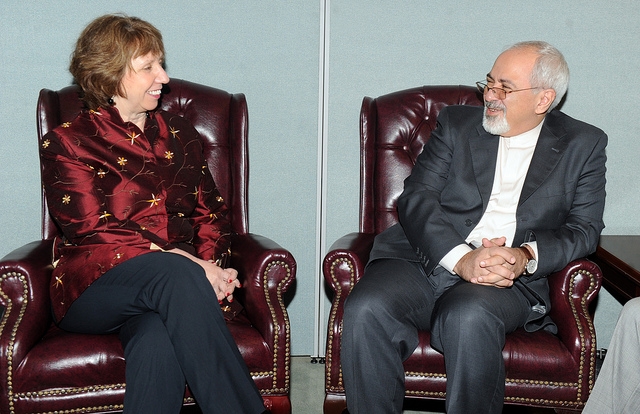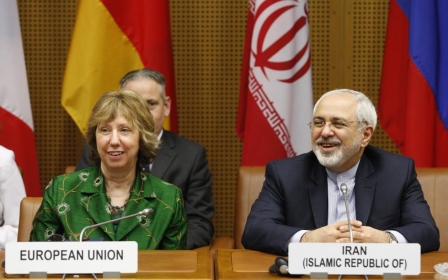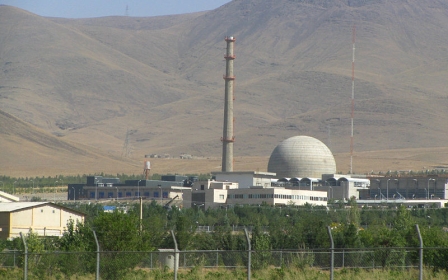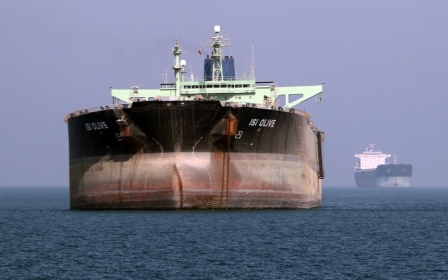Iran, world powers start drafting nuclear deal amid 'fundamental' differences

Iran and a group of world powers began drafting a comprehensive agreement on Wednesday in Austria, with the aim of striking a deal to curb the Iranian nuclear programme in exchange for an end to sanctions against the Persian state.
At the talks in Vienna, Iranian Foreign Minister Mohammad Javad Zarif told reporters that substantial differences remain, although a deal could still be struck before a 20 July deadline.
“Today we have slowly begun to draft the final agreement…but there are still many differences” over the text, he was quoted as saying by the Iranian Students’ News Agency (ISNA). “This does not mean we have reached an agreement.”
“If there’s political will, we can reach [a] deal even before [the] 20 July deadline,” he added.
Negotiators have agreed a title for the document, which will be known as the “General Joint Plan of Action”, although progress has been slow on producing the text in talks described as “very difficult” by Zarif.
He warned there remain “fundamental disagreements” between Iran and the P5+1 powers, which includes the permanent members of the UN Security Council plus Germany.
A key difference holding back an agreement is said to be the number of centrifuges Iran wants to keep running, which are used to produce nuclear fuel.
“The Iranians have not yet shown a willingness to reduce their centrifuges to an acceptable number, making it difficult to envision a compromise at this point we could all live with,” an unnamed negotiator to the Reuters news agency, raising an issue that appeared to be confirmed by Iranian officials.
“What the West offers Iran on the number of centrifuges is like a joke and unacceptable,” a senior Iranian official told Reuters. “However, negotiation means trying to overcome disputes and it is what both sides are doing” they added.
The Iranians are said to be angry that Russia and China support the call for them to reduce their number of centrifuges, according to a report on Al Monitor. The report, however, added that Russian and Chinese delegates agree Western powers should rapidly relieve sanctions against Iran.
Tehran says it uses centrifuges to enrich uranium in order to fuel nuclear power stations, although the West are concerned their actual goal is to make bombs. Other points of division include agreeing a timetable for a full lifting of crippling US and EU sanctions, which an American official said on Wednesday had left the Iranian economy in a “state of distress”.
“Iran sanctions are the toughest the world community has imposed on any country, and its economy is suffering a serious blow as a result – an impact that is not being reversed,” said US Treasury Secretary Jacab Lew at a meeting of the Joint Economic Development Group in Jerusalem on Wednesday.
An interim deal struck last November led to world powers releasing $7 bn in frozen funds in return for Iran slowing down their uranium enrichment. Talks will continue in Vienna for the rest of the week, with Iranian chief negotiator Abbas Araqchi warning tough discussions lie ahead.
“There is still a long way to go before we reach an agreement acceptable to all sides,” IRNA quoted him as saying.
New MEE newsletter: Jerusalem Dispatch
Sign up to get the latest insights and analysis on Israel-Palestine, alongside Turkey Unpacked and other MEE newsletters
Middle East Eye delivers independent and unrivalled coverage and analysis of the Middle East, North Africa and beyond. To learn more about republishing this content and the associated fees, please fill out this form. More about MEE can be found here.




